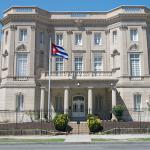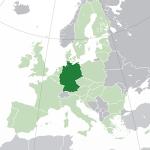Open displays of bipartisanship are rare these days and, as such, should be applauded. Unfortunately, a recent example of bipartisanship promotes junk science and bogus health claims.
science and politics
I met a friend at a coffee shop in Seattle today. We covered a lot of ground in the short time we had together -- politics, the state of our nation, the state of our city.
One of the predictable consequences of our tribalistic, hyperpartisan society is a collapse in basic decency.
It has been a few months since news broke of a suspected "sonic attack" against American diplomats and their staff at the U.S. embassy in Havana, Cuba. Unfortunately, we seem to be nowhere closer to solving the mystery behind what happened.
Like a coffee stain on a new carpet, Karl Marx stubbornly refuses to go away.
ACSH has been around since 1978 but I doubt we have ever seen anything like this before.
The rapprochement with Cuba appears to be short-lived.
Every so often, the media likes to warn us that we're all dying from air pollution.
In order to capitalize on current events and our hyperpartisan climate, science news outlets increasingly feel the need to weigh in on how day-to-day political affairs will affect science.












